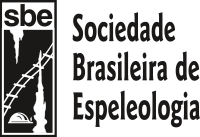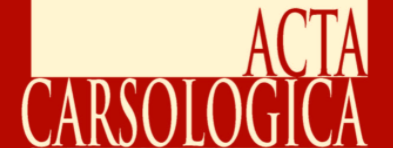O objetivo deste trabalho é resgatar alguns aspectos metodológicos do estudo sobre as representações mentais de cavernas no Brasil. A base desta pesquisa consistiu em um ensaio, abordando as representações sociais de um determinado grupo de alunos do ensino médio sobre o exokarste e o endokarste. Os resultados mostraram que os significados variam apenas um pouco, porém, o resultado mais interessante se deve ao fato de que os alunos, que já haviam visitado cavernas em algum período de suas vidas, ainda possuíam conceitos “negativos” em relação a esse ambiente antes mesmo de estímulos visuais. Foram citadas cerca de 640 palavras associadas ao exokarst e ao endokarst, enfatizando: medo, escuro, sombrio, caveira, lugares escondidos, fantástico e belo, o que ajudou a identificar relações entre os aspectos culturais e psicológicos do grupo, principalmente visões gerais sobre os aspectos obscuros e misteriosos desta paisagem e seu destaque sobre as belezas naturais. Os dados analisados mostraram que o desenvolvimento de novas pesquisas sobre as representações mentais de cavernas é muito importante, principalmente para programas de educação ambiental promovendo conceitos adequados sobre cavernas e estendendo atividades de ecoturismo educacional em cavernas brasileiras.
The aim of this work is to recover some methodological aspects of the study about the mind representations of caves in Brazil. The basis of this research consisted of one essay, approaching the social representations of a particular group of high school students on the exokarst and the endokarst. The results showed that the meanings vary only slightly, however, the most interesting result was due to the fact that students, who had already visited caves in some period of their lives, still held “negative” concepts regarding this environment even before visual stimulations. About 640 words associated with the exokarst and the endokarst were mentioned, emphasizing: fear, dark, shadowy, skull, hidden places, fantastic and beauty, which helped identifying relations between the cultural and psychological aspects of the group, mainly general views about the obscure and mysterious aspects of this landscape and its prominence over natural beauties. Analyzed data showed that the development of new research on mind representations of caves is very important, mainly for environmental education programs promoting adequate concepts about caves and extending activities of educational ecotourism in Brazilian caves.
Panisset TavassosLE, Gomez TravassosE, Panisset TavassosL, Panisset TravassosLC. Non-Specialists Perception about Endokarst and Exokarst Scenarios: Visions from High School Students. AC [Internet]. 2007Sep.1 [cited 2021Aug.21];36(2). Available from: https://ojs.zrc-sazu.si/carsologica/article/view/202

